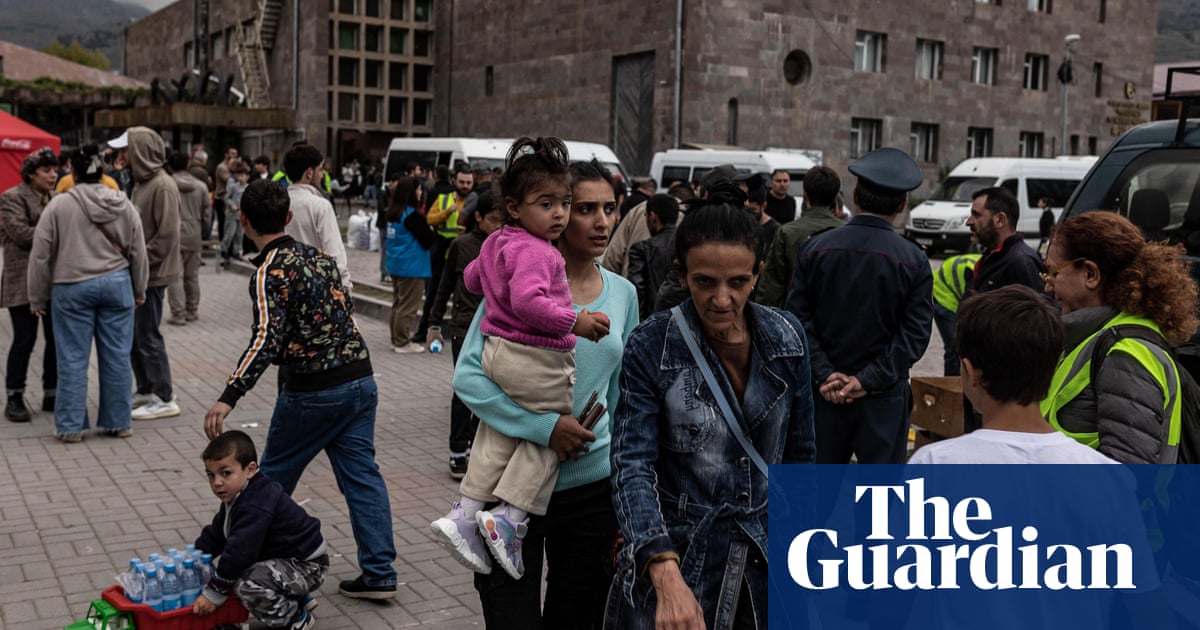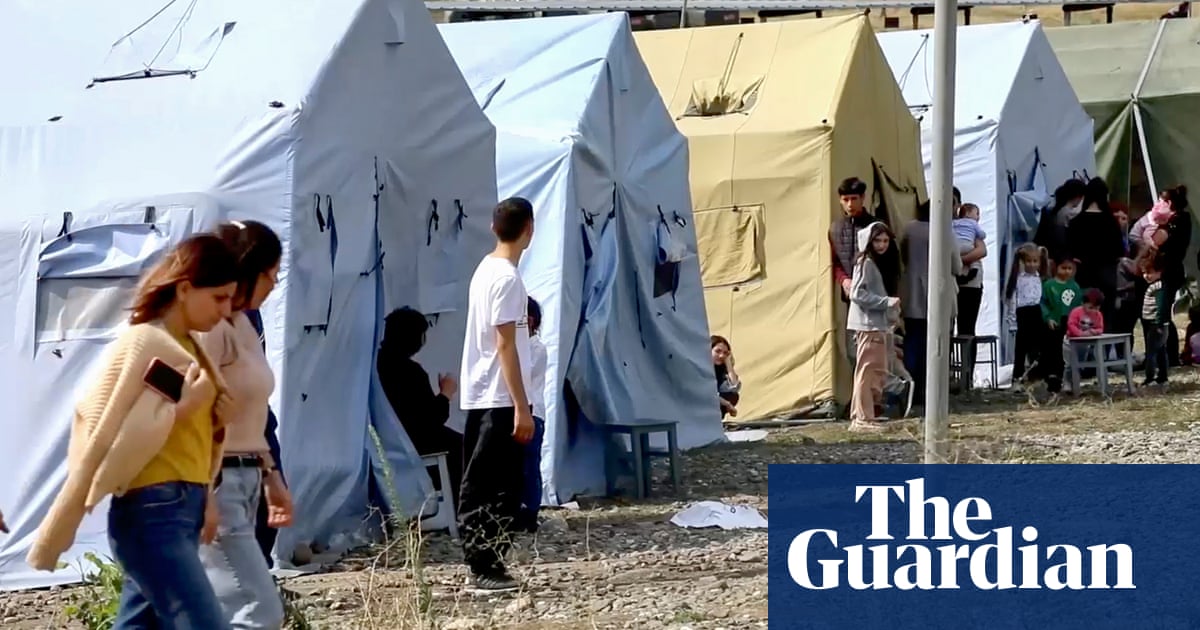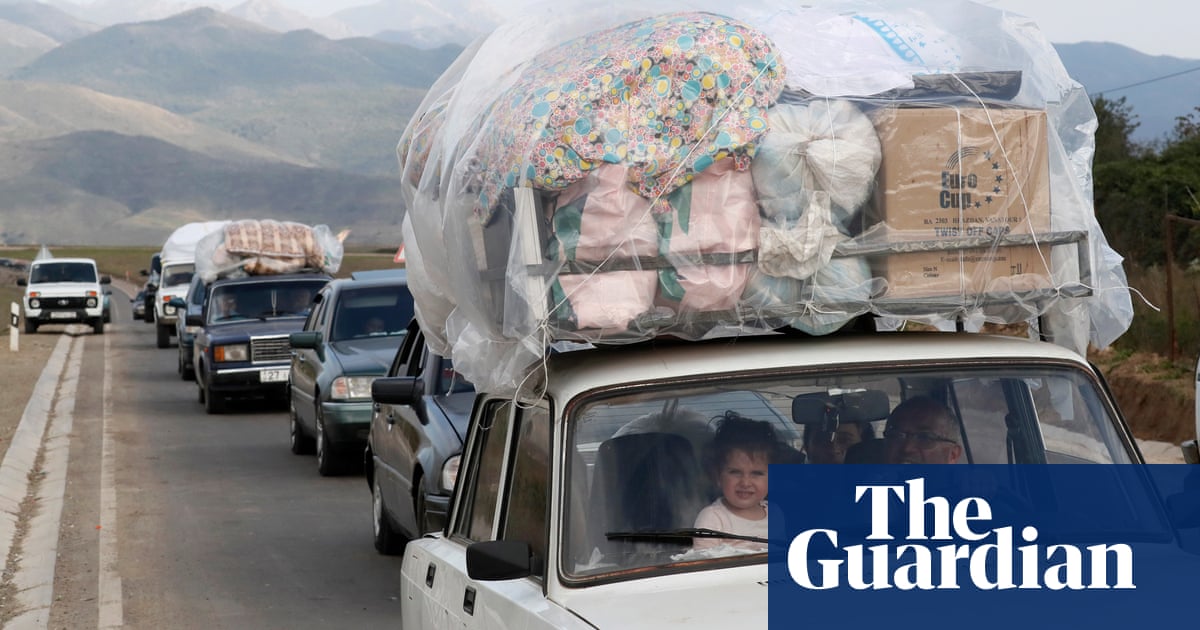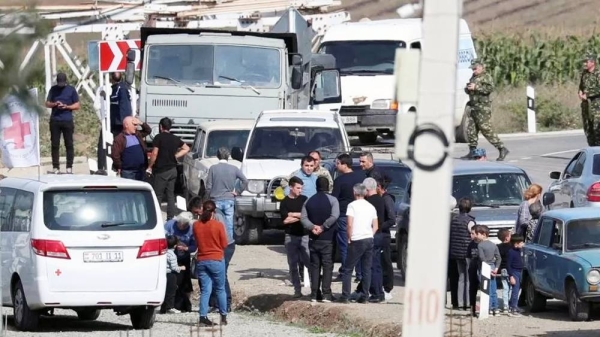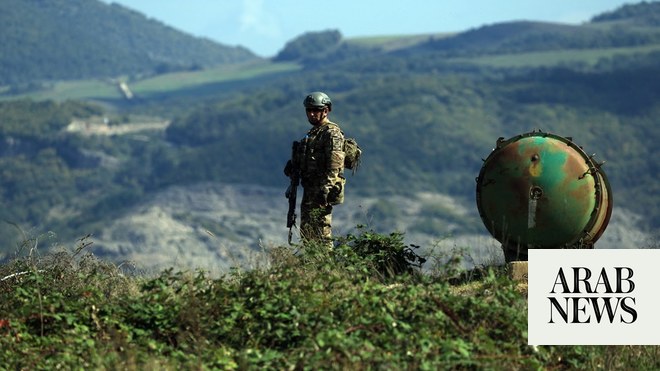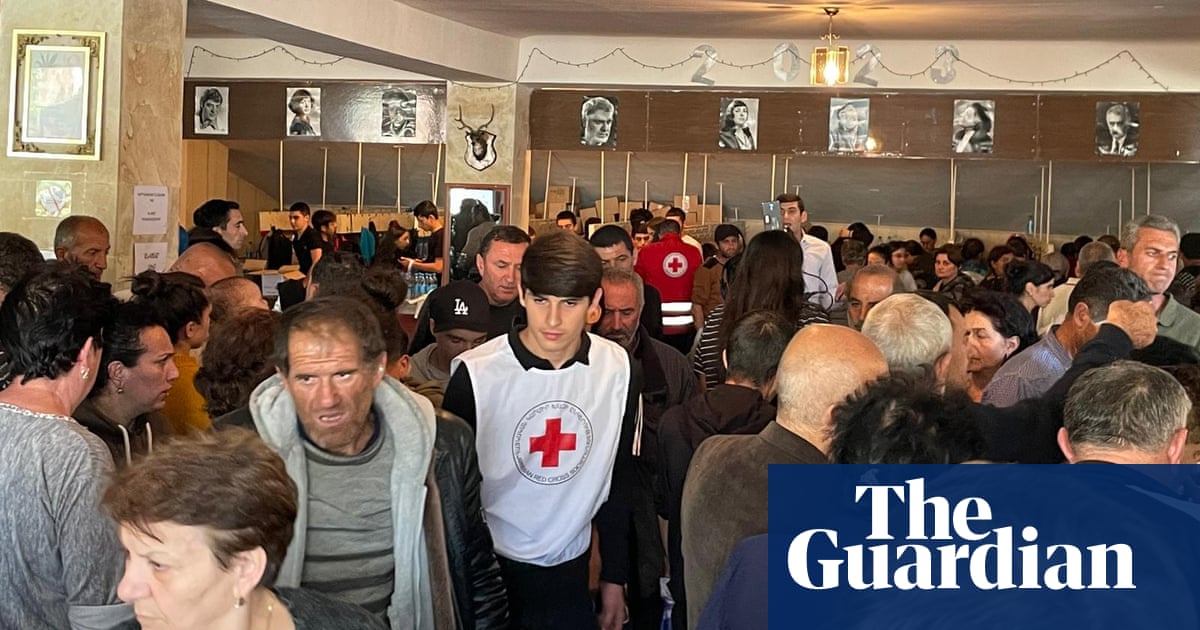
Anoush, a 23-year-old recent English graduate from Martuni province in the self-declared republic of Nagorno-Karabakh, is one of tens of thousands of ethnic Armenians who have fled to Armenia this week, after officials announced that Nagorno-Karabakh will cease to exist on New Year’s Day 2024.
Almost all ethnic Armenians have now left the disputed region, which broke away from Azerbaijan after the collapse of the Soviet Union, amid events that Armenia’s prime minister, Nikol Pashinyan, has called a “direct act of ethnic cleansing”.
“We were happy living there, even during nine months of blockade [of Nagorno-Karabakh by Azerbaijani forces], when there was no light, gas supply or internet, no flour to bake bread, because we were in our homeland,” says Anoush, who was one of dozens of people to contact the Guardian via a callout about Nagorno-Karabakh. “Our city [survived the blockade], as people were able to keep domestic animals such as chicken and geese.”
When Azerbaijan launched a 24-hour military offensive on 19 September, Anoush’s 28-year-old brother, Harout – who had returned to Karabakh from working in construction in Moscow to grow potatoes for his starving family – went to the border to join the frontline resistance.
“My grandmother baked bread for our soldiers from leftover cornflour. But unfortunately, we were not as strong as our enemy, and we were not as many,” Anoush says.
Last Monday, she and seven family members were driven over the Armenian border by a Karabakh civilian in an army vehicle. “We didn’t have to pay for it. After nine months of blockade, money has no value in Karabakh.
“It was so difficult to leave. My sister and brother were in school. I packed a handful of soil from my homeland, a photo album and some warm clothes.”
Four days later, the group arrived in the village of Tsovak in eastern Armenia, where Anoush’s boyfriend, who has Karabakh roots but lives in Armenia, has rented a three-bedroom house.
“It’s 13 of us here, sleeping on the floor. Six more will come soon – my mum, my three brothers, my sister and my grandmother. Harout will join us soon, too.
“We don’t know yet [whether we will stay in Tsovak]. We don’t know where it will be peaceful to live. I think there are no peaceful places on our planet left.”
Muriel Talin Clark, 51, a UK resident with Armenian roots, had travelled to her ancestral homeland last month to volunteer for the educational charity Oxford Armenia Foundation and was supposed to return to London two weeks ago.
But when thousands of refugees started crossing into the country, she decided to stay and volunteer with the Armenian Red Cross at a registration centre for refugees in the tiny town of Vayk in central Armenia.
“There are enormous numbers of people arriving, and so many different needs. The registration office is overloaded. People have packed up their life and tried to fit it on the luggage racks of their vehicles, with entire families crammed inside, taking turns to sleep in the car.
“Many arrived on buses and only have a small plastic bag with personal belongings. We provide them with a bit of food, nappies and wet wipes. People are relieved to get out of Karabakh and escape harm, but particularly older people are often very distraught and feel completely lost. A lot of people are crying, because they know there is no way back. This is a forced migration.”
A doctor and a few nurses, Clark says, are trying their best to provide care for many of the refugees, with elderly people in particular often arriving in critical condition, because of restricted access to food and medication during the lengthy blockade.
“Many people have been starving, eating only potatoes for instance, they ran out of everything, even salt,” she says. “We have had a few children arriving with fever. At night, the temperature drops a lot, but people don’t have suitable gear.”
Volunteers at the centre are photocopying refugees’ passports or birth certificates, where available, before trying to find them a place to stay across Armenia.
“These people have nowhere to go. They are coming to Armenia because they believe it is their only hope of survival. They cannot live with Azerbaijani people, in a country where they are not wanted. We try to offer them abandoned houses in villages, but it’ll be difficult to fit everyone in.”
Some of the children arriving, Clark explains, have not been schooled for quite some time, while others want to start higher education in Yerevan, the capital.
“Many are very keen to go to Yerevan to find work, to build a new life, but finding places is quite difficult. Many Russians have recently migrated there, because of the sanctions, to be able to continue carrying out business.
“Rents have gone up a lot, there’s a capacity problem. If you don’t have connections, it’s very hard to find a place.”
Though some, she says, have family who can put them up, most arrivals do not know anyone in Armenia. Many of the refugees pouring into the centre are subsistence farmers from rural areas in Nagorno-Karabakh, looking to find a new piece of land, but Clark says farming conditions may be different to what they are used to.
A lot of Armenians are willing to help, Clark says, although many are “in shock”.
“People are very sad because we have lost that land now to Azerbaijan, with all its cultural heritage, churches from the middle ages, fortresses, all considered extremely precious. It’s a tragedy.
“We’ve got so much to do. People are coming and coming.”




